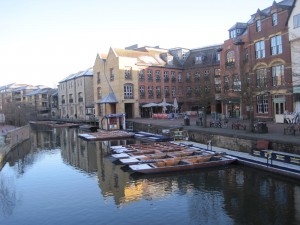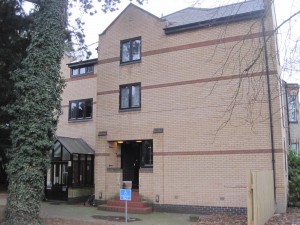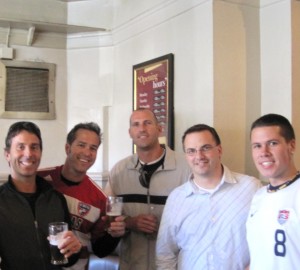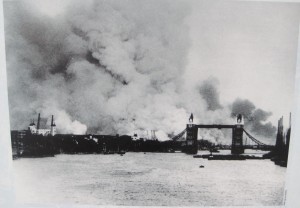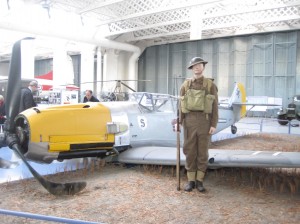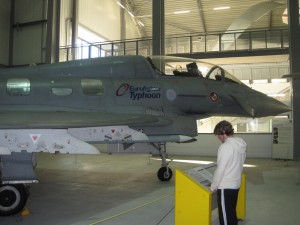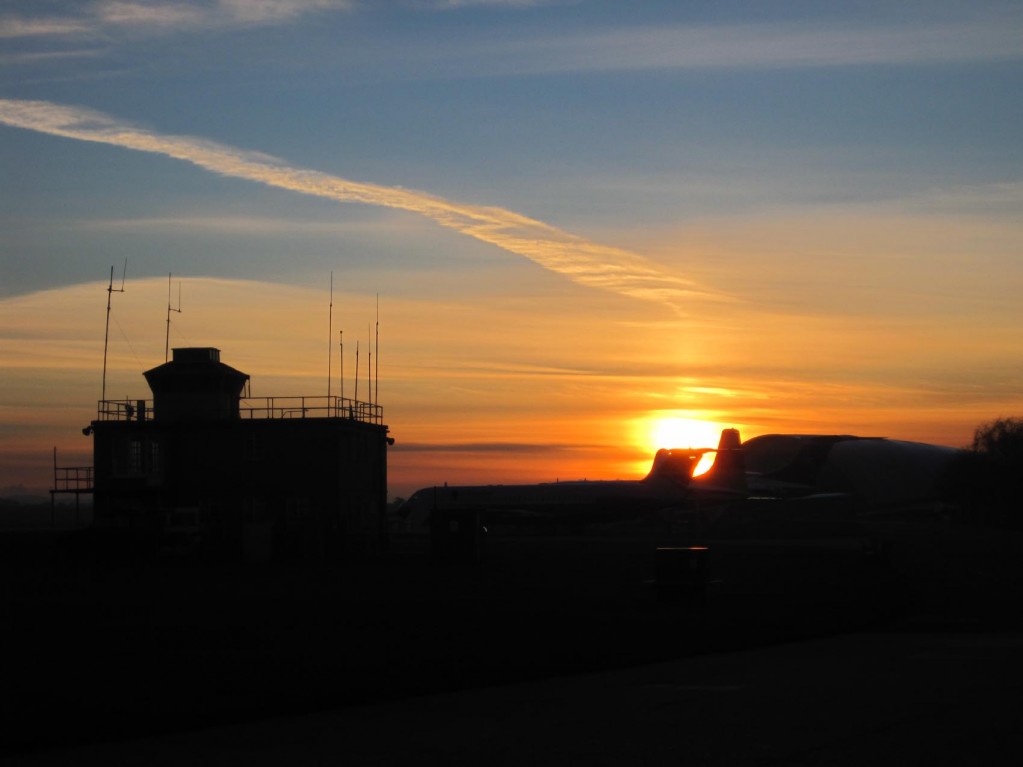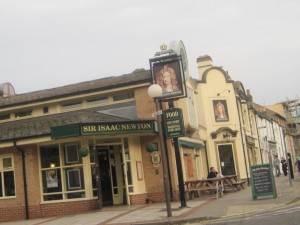Their thick Scottish accent only allowed me to understand about every other word that they were saying, but I didn’t much mind because they were just so nice. You could feel the exuberance flowing off of them, as if telling us about their beautiful place of worship helped them feel closer to it. Only about halfway through their introduction to the Cathedral did they even tell us that they were married, but it made sense. This couple was by far the kindest people I’d met since my flight over the pond almost three weeks ago.
We only ended up in Glasgow because when we told our history professor that we were going to Scotland he told us that we won’t have seen Scotland without seeing Glasgow. After he said that, we altered our plans (which were for Edinburgh all weekend) and fit in Glasgow on Sunday. When we told Professor Murphy our good news, he asked us why on earth we were going to Glasgow on a Sunday because everyone there will just be hung over or maybe in church. Awesome. Well, against Murphy’s “better” judgment we made plans to go to Edinburgh on Thursday after class and stay there until Sunday when we would go to Glasgow.
Right after class on Thursday we took a taxi to the train station and hopped on the first of our three trains to Edinburgh. The first two trains were pretty quick but the last one took an entire four hours. The time went relatively quickly and before we knew it we were getting off the train and searching for a taxi. We quickly found the queue for a taxi and found a large taxi that would accommodate us all, but the bigger problem came when we told the taxi driver where we wanted to go. “High Street Hostel, please.” To which the taxi driver responded, “Grapwoi knsdnf oiwndn owei ponf?” At least that’s what it sounded like to us. “High Street Hostel? 8 Blackfriar’s Street?” Repeating those words over and over we eventually ended up at our hostel.
It was perfect! Our hostel was right in the middle of everything and it was truly amazing. Right off the bat, we were amazed at the beauty of the city and the architecture of Edinburgh. After a cheap dinner at a wonderful pub, we walked the (VERY cold) streets before we went back to our hostel and settled down for the night.
The next morning we walked the very short distance from our hostel to the castle, stopping along the way for some delicious breakfast at a hole-in-the-wall restaurant. The stone castle towers over the city with volcanic cliffs plunging down from either side. The tickets to the castle may have been the most expensive thing we paid for all weekend, but it was so incredibly worth it. With cannons protruding from the walls from 360 degrees and buildings dating back to many various eras, the castle just oozed character. In addition, since the castle was built on the top of a dormant volcano, every way you looked off of its defensive walls you saw picturesque Edinburgh cascading down below.
After the castle, we went to Scotland’s National Gallery. Now maybe I’ve just never been to any real art museums, but this was amazing. There is something about seeing Van Gogh’s name by a canvas covered in his brush strokes that left me in awe. In addition to Van Gogh, I saw works by Rembrandt, Monet, Raphael, Botticelli, and by far my favorite were the works by Degas. I grew up seeing copies of his paintings of ballerinas in every studio I ever danced in, so seeing one in real life was really fantastic for me. Plus it was free!
The next day we did something truly awesome which none of the guidebooks recommended. Close to town were two hills, one boasting multiple monuments and the city’s observatory. The other hill was much higher with sheer cliffs on one side. We walked them both and they both offered superb picture taking opportunities. The city was bathed in the glowing light of midday sun and it was just perfect. Not to mention we did all of this with our fun Canadian friend that we had met in the hostel. Hostel folk are just fantastic; you can meet interesting people from all stages in life who are trying to see the world, just like you.
That night we took a tour of the cavernous rooms lurking below the Scottish streets of Edinburgh. They were spooky for sure, but definitely had a dark and interesting path. With each new turn, a story was told showing some dark aspect of that room or corridor’s past. Not for people who are easily spooked, but definitely an interesting stop on our journey. However, no thanks to the complimentary whiskey that tasted like death itself.
After the short train ride the following morning we stepped out of the train station and into a Glasgow town square, abandoned by everyone but Santa. Yes, you read that correctly. Every direction there were clusters of people dressed like Santa. Within the walking of the first block we found there source with a big sign that said “Glasgow Santa Dash 2010”. Maybe it got delayed or maybe Glasgow doesn’t realize that Santa is usually reserved for December and that it is no longer 2010, who knows? Almost as entertaining as the “art” we found at the free Modern Art Museum we went to next…
Then we walked to the Glasgow Cathedral which was just getting out of church. Before we could go into the main part of the church, the nicest couple ever met us and started telling us all about the cathedral, what was there, when it was built, how beautiful it was, everything. They were just so nice and happy to share with us. It really touched my heart, reminding me of the warmth of my own grandparents and my own church and even home. As abandoned and hung over as Glasgow, Scotland may have been that chilly Sunday morning in January, I found there a little piece of home. My dad always says, “It’s people not places,” I just know how amazing it is to experience a weekend where I get the best of both.
Check out all of my pictures here!

